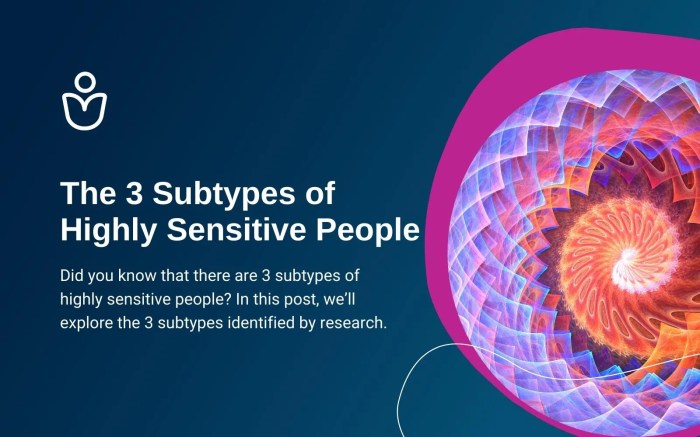7 beliefs happy people shape their outlook and experiences. This exploration dives deep into the core principles that underpin happiness, examining how positive thought patterns and beliefs about oneself, others, and the world impact overall well-being. From defining happiness itself to understanding resilience, this guide offers a roadmap to unlocking inner joy.
The seven beliefs discussed range from understanding self-acceptance and compassion to fostering healthy relationships and appreciating the world around us. Each belief is explored with examples, providing practical insights and actionable strategies for cultivating happiness in your life.
Defining Happiness
Happiness, a concept deeply intertwined with human experience, remains a subject of ongoing exploration. While seemingly simple, its definition varies across philosophical, psychological, and societal frameworks. Understanding these nuances helps us appreciate the multifaceted nature of well-being and how it contributes to a fulfilling life.The pursuit of happiness is a universal aspiration, yet the path to achieving it is often complex and individualized.
This exploration dives into various perspectives on happiness, examining its relationship with related emotions like pleasure, joy, and contentment, and delving into the key factors that contribute to a sense of overall well-being.
Philosophical Perspectives on Happiness
Different philosophical traditions offer diverse perspectives on happiness. Ancient Greek philosophers like Aristotle emphasized eudaimonia, often translated as flourishing or living well. This concept goes beyond momentary pleasure, focusing instead on living a virtuous life aligned with one’s potential. Stoicism, another influential school of thought, emphasizes acceptance of what one cannot control and cultivating inner peace as a pathway to happiness.
Eastern philosophies, like Buddhism, often focus on mindfulness, detachment, and the reduction of suffering as key elements in achieving lasting happiness.
Psychological Understanding of Happiness
Psychology offers a more empirical approach to understanding happiness. Researchers often distinguish happiness from other positive emotions. Happiness is a more enduring state of well-being, whereas pleasure is a temporary sensation. Joy is an intense, often short-lived feeling of delight, and contentment is a sense of satisfaction with one’s current circumstances. Psychological theories often highlight the role of factors like optimism, social connections, and gratitude in fostering happiness.
Positive psychology, in particular, emphasizes the cultivation of strengths and virtues as crucial components of a fulfilling life.
Societal Conceptions of Happiness
Societal perceptions of happiness are influenced by cultural norms and values. In some cultures, happiness might be equated with material success or social status. Other cultures may prioritize community well-being and harmonious relationships as key elements of a happy life. These diverse interpretations underscore the subjective and culturally contingent nature of happiness. Modern society, often characterized by rapid technological advancement and evolving social structures, faces new challenges in defining and achieving happiness.
Factors Contributing to Well-being
Numerous factors contribute to a feeling of well-being, encompassing physical, mental, and social dimensions. Good physical health, including sufficient sleep, a balanced diet, and regular exercise, plays a vital role. Mental well-being, fostered through stress management techniques, mindfulness practices, and cognitive therapy, is equally important. Strong social connections, supportive relationships, and a sense of belonging contribute significantly to overall happiness.
Comparison of Happiness Facets
| Facet | Definition | Duration | Relationship with other emotions |
|---|---|---|---|
| Happiness | A sustained state of well-being and fulfillment. | Enduring | May include elements of pleasure, joy, and contentment, but is distinct. |
| Pleasure | A temporary sensation of enjoyment. | Short-lived | Often a component of happiness, but not a defining characteristic. |
| Joy | An intense, often short-lived feeling of delight. | Transient | Can be a fleeting aspect of happiness, but not a replacement for it. |
| Contentment | A sense of satisfaction with one’s current circumstances. | Sustained | Often a contributing factor to happiness, but not synonymous with it. |
Core Beliefs of Happy People

Happiness isn’t a fleeting emotion; it’s often rooted in a set of core beliefs that shape how we perceive the world and react to challenges. These beliefs, while not always consciously articulated, powerfully influence our actions and choices, leading to a more positive and fulfilling life experience. Understanding these beliefs can help us cultivate a more optimistic and joyful outlook.A crucial element in understanding happiness is recognizing the role of internal narratives.
Happy individuals tend to have a more positive internal dialogue, often based on beliefs about themselves, others, and the world around them. These core beliefs aren’t just abstract ideas; they manifest in specific thought patterns and behaviors, creating a cycle of positivity that reinforces happiness.
Common Positive Thought Patterns
Positive thought patterns are essential components of a happy life. They are more than just fleeting moments of optimism; they are ingrained ways of thinking that shape our interactions and responses to daily events. These patterns reflect a deep-seated belief in one’s ability to overcome challenges and to find meaning in life’s experiences.
- Belief in Personal Growth: Happy individuals often view challenges as opportunities for growth and learning. They see setbacks as temporary obstacles rather than permanent failures, fostering resilience and a proactive approach to problem-solving. This belief translates into a willingness to embrace new experiences and continuously strive for improvement.
- Focus on Strengths and Accomplishments: Happy individuals tend to focus on their strengths and past accomplishments. This self-awareness allows them to appreciate their abilities and build confidence. They actively acknowledge their progress and celebrate their achievements, no matter how small. For example, someone might focus on how far they’ve come in a particular project rather than dwelling on initial mistakes.
- Optimistic Outlook: A consistent optimistic outlook is another hallmark of happiness. Happy people anticipate positive outcomes, even in uncertain situations. This positive expectancy shapes their actions and influences their interpretation of events, creating a more favorable perception of the world. For example, a person might interpret a delay as a temporary inconvenience rather than a major setback.
- Resilience and Adaptability: Happy people are generally more resilient and adaptable to change. They see challenges as temporary and adjust their approach as needed. This flexibility allows them to navigate life’s ups and downs with greater ease and grace. An example might be a professional who adjusts their work strategy after receiving feedback from a colleague, showing adaptability.
- Gratitude and Appreciation: Happy people tend to cultivate a sense of gratitude and appreciation for the good things in their lives. They actively acknowledge and appreciate the positive aspects of their circumstances, fostering a sense of contentment and joy. This involves actively seeking out and recognizing moments of happiness, whether it’s a kind gesture from a friend or a beautiful sunset.
Influence on Actions and Choices
The core beliefs Artikeld above significantly influence the actions and choices of happy individuals. They don’t just think positively; they act positively, creating a virtuous cycle of happiness. Their beliefs manifest in their daily decisions, shaping their relationships, and influencing their overall well-being.
- Proactive Problem Solving: The belief in personal growth leads to a proactive approach to problem-solving. Happy people don’t wait for problems to be resolved; they actively seek solutions and take initiative. This contrasts with a reactive approach, where individuals wait for things to happen to them.
- Meaningful Relationships: A focus on strengths and accomplishments often leads to more meaningful relationships. Happy individuals tend to appreciate the strengths of others, fostering a supportive and positive environment. They actively nurture these relationships, creating a sense of community and belonging.
- Increased Resilience: An optimistic outlook and belief in resilience contribute to a greater ability to handle stress and setbacks. Happy individuals are less likely to be overwhelmed by challenges, and they are better equipped to adapt to change.
Beliefs about Self
Happy people possess a unique perspective on themselves, characterized by self-awareness, acceptance, and a focus on personal growth. They understand that perfection is an illusion and embrace their strengths and weaknesses with equanimity. This positive self-perception forms a crucial foundation for their overall well-being and resilience. They don’t strive for unattainable ideals but rather focus on continuous improvement, viewing each challenge as an opportunity for learning and growth.Happy individuals typically view themselves with a balanced perspective, acknowledging both their strengths and weaknesses.
They recognize that strengths are not fixed attributes, but rather capabilities that can be developed and nurtured. Weaknesses, on the other hand, are not viewed as insurmountable obstacles, but as areas for improvement and learning. This realistic self-assessment fosters a sense of self-efficacy and encourages continuous personal development.
Self-Compassionate Beliefs
Self-compassion is a crucial element in fostering a positive self-image. It involves treating oneself with the same kindness, understanding, and support that one would offer a friend facing adversity. Happy individuals cultivate self-compassion by acknowledging that imperfections and setbacks are a natural part of the human experience. They avoid harsh self-criticism and instead offer themselves empathy and encouragement.
- Acceptance of Imperfection: Happy people recognize that everyone makes mistakes and experiences setbacks. They don’t dwell on failures but instead view them as learning opportunities.
- Self-Kindness: They treat themselves with the same understanding and compassion they would offer a loved one facing a similar challenge. They acknowledge their own struggles without judgment.
- Recognizing Common Humanity: Happy people understand that they are not alone in their struggles and that everyone experiences challenges at some point in their lives. This recognition fosters a sense of connection and reduces feelings of isolation.
Self-Acceptance and Happiness
Self-acceptance is the cornerstone of a positive self-image. It involves acknowledging and embracing all aspects of oneself, both the positive and the negative. Happy people understand that self-acceptance is not about ignoring flaws but rather about acknowledging them without judgment and focusing on personal growth. This acceptance allows them to move forward with a sense of peace and contentment.
Positive Self-Image and Well-being
A positive self-image plays a significant role in overall well-being. When individuals have a healthy view of themselves, they are better equipped to handle stress, build strong relationships, and pursue their goals with confidence. This self-assurance stems from a deep understanding and acceptance of one’s own worth and capabilities.
| Self-Belief Category | Description |
|---|---|
| Strengths Recognition | Identifying and appreciating personal talents, skills, and positive attributes. |
| Weaknesses Acknowledgment | Recognizing areas for improvement and approaching them with a growth mindset. |
| Self-Compassion | Treating oneself with kindness, understanding, and support, similar to how one would treat a friend. |
| Self-Acceptance | Embracing all aspects of oneself, both positive and negative, without judgment. |
| Positive Self-Image | Having a realistic and healthy view of oneself, acknowledging strengths and weaknesses with a focus on personal growth. |
Beliefs about Others
Happy people often cultivate strong and positive relationships, recognizing the vital role others play in their well-being. They understand that genuine connection and empathy are not just desirable traits, but fundamental aspects of a fulfilling life. This understanding shapes their interactions and fosters a sense of community.Happy individuals typically possess a deep understanding of human nature, recognizing the complexities and motivations behind different behaviors.
They are more likely to see the best in others, rather than assuming the worst. This perspective allows them to approach interactions with optimism and a willingness to connect.
Perceptions of Others
Happy people tend to view others with compassion and understanding. They acknowledge that everyone faces challenges and experiences life in their unique way. This perspective fosters tolerance and reduces judgment. They appreciate diversity and see differences as enriching, rather than divisive. This positive outlook allows for more open and constructive interactions.
Importance of Empathy and Compassion
Empathy and compassion are essential components of happiness. Happy people actively strive to understand others’ perspectives, recognizing their emotions and experiences. This ability to empathize strengthens bonds and fosters meaningful connections. Compassion, a deep concern for others’ well-being, encourages acts of kindness and support, which ultimately benefits both the giver and the receiver. Empathy and compassion contribute to a positive and supportive social environment.
Healthy Relationships and Well-being
Healthy relationships are crucial for overall well-being. Happy people recognize the importance of nurturing and maintaining meaningful connections with family, friends, and colleagues. These connections provide support, belonging, and a sense of purpose. Strong relationships offer a foundation for resilience and provide a buffer against stress and negativity.
Positive Interpersonal Skills
Happy people often demonstrate a range of positive interpersonal skills. Active listening, clear communication, and respect for others’ opinions are frequently observed. They are skilled at resolving conflicts constructively, prioritizing understanding over winning arguments. They express gratitude for others’ contributions and offer support when needed. These skills foster healthy and harmonious relationships.
Thinking about the 7 beliefs happy people often hold? One key element is accepting that, as you age, you might find that your social circle naturally evolves. Like the article the older you get the fewer friends youll keep but thats really fine points out, it’s perfectly normal for the number of close friends to diminish.
This doesn’t diminish happiness; it simply reflects a shift in priorities and connections. Ultimately, happy people focus on the quality, not the quantity, of their relationships, which is a cornerstone of their well-being.
Characteristics of Positive Relationships
| Characteristic | Description |
|---|---|
| Mutual Respect | Both individuals value and acknowledge each other’s worth and opinions. |
| Open Communication | Honest and clear exchange of thoughts and feelings without judgment. |
| Trust and Reliability | Dependability and consistency in actions and commitments. |
| Shared Values | Alignment in fundamental beliefs and principles that guide interactions. |
| Support and Encouragement | Providing encouragement and assistance during challenging times. |
| Forgiveness and Understanding | Acknowledging mistakes and offering compassion in interpersonal conflicts. |
Beliefs about the World
Happy individuals often possess a positive outlook on the world, viewing challenges not as insurmountable obstacles but as opportunities for growth and learning. They recognize that life inevitably involves ups and downs, but maintain a sense of resilience and optimism in the face of adversity. This perspective empowers them to navigate life’s complexities with greater ease and find fulfillment in the journey.
Optimistic and Resilient Perspectives
Happy people tend to focus on the potential for good in any situation. They see challenges as opportunities for development and view setbacks as temporary detours rather than permanent failures. This optimistic outlook allows them to bounce back from adversity more effectively. Resilience is cultivated through a belief in their ability to overcome obstacles and a willingness to adapt to changing circumstances.
For instance, a person facing job loss might see it as an opportunity to pursue a new career path or develop a skill they’ve always wanted to learn.
Ever wondered what truly makes people happy? It’s not just about luck, but about cultivating certain beliefs. Happy people often embrace gratitude and focus on personal growth. They also tend to believe in their ability to overcome challenges. But happiness isn’t just about mindset; it’s also about how you approach your day.
To really own your mornings and seize the day, check out these 7 steps, which can deeply impact your overall well-being and align with those key happy beliefs: 7 steps own your morning and seize your day. Ultimately, understanding these 7 steps and the underlying beliefs of happy people is a journey towards a more fulfilling life.
Impact of Purpose and Meaning
A strong sense of purpose and meaning in life is a cornerstone of happiness. Happy individuals often find meaning in contributing to something larger than themselves, whether through their work, relationships, or community involvement. This sense of purpose provides a framework for navigating life’s complexities and gives their actions a deeper significance. For example, volunteering at a local animal shelter or mentoring young people can instill a strong sense of purpose and meaning.
Gratitude and Appreciation
Happy people cultivate gratitude and appreciation for the world around them. They actively acknowledge the positive aspects of their lives and express thankfulness for the people and opportunities they encounter. This practice not only enhances their overall well-being but also fosters a sense of connection to the world around them. Expressing gratitude can be as simple as appreciating a beautiful sunset or acknowledging a kind gesture from a friend.
Ever wondered what happy people truly believe? It turns out, many share core values. But to really excel, you need more than just positive thinking. Learning from successful CEOs, like the 10 habits detailed in this insightful article ( 10 habits successful ceos that you should adopt ), can provide valuable strategies for achieving your goals. Ultimately, these principles often tie back to the same 7 core beliefs happy people have, highlighting the interconnectedness of personal well-being and professional success.
Different Worldviews and Their Impact on Happiness
| Worldview | Description | Impact on Happiness |
|---|---|---|
| Optimistic | Focuses on potential for good, views challenges as opportunities, resilient in face of adversity. | High levels of happiness, greater ability to cope with stress. |
| Pessimistic | Focuses on potential for bad, views challenges as insurmountable, less resilient. | Lower levels of happiness, increased vulnerability to stress and anxiety. |
| Neutral/Indifferent | Lacks a strong positive or negative bias, may not fully appreciate opportunities or challenges. | Moderate levels of happiness, may not experience the full spectrum of emotional responses. |
| Purpose-driven | Finds meaning in contributing to something larger than themselves. | High levels of happiness, increased sense of fulfillment and meaning. |
| Disconnected | Feels alienated or detached from the world, may lack a sense of belonging or purpose. | Lower levels of happiness, potential for loneliness and isolation. |
Beliefs about Purpose and Meaning
A deep sense of purpose and meaning in life is a cornerstone of happiness. It provides a framework for navigating life’s challenges and finding fulfillment. Knowing your values and goals, and actively pursuing them, fuels a sense of agency and control, leading to greater satisfaction and overall well-being. This is not simply about grand pronouncements or lofty ideals, but rather about finding meaning in everyday actions and connecting them to a larger narrative.Finding purpose and meaning is a deeply personal journey.
It’s about aligning your actions with your values and recognizing the impact you have on the world, no matter how small. This alignment creates a powerful sense of coherence and belonging, fostering happiness and resilience.
The Role of Values and Goals
Values are fundamental beliefs about what’s important in life. They guide our choices and shape our priorities. Happy individuals often have clearly defined values, and their goals are directly connected to these values. This connection provides a sense of direction and motivates action. For example, someone who values creativity might set goals that allow them to express their artistic talents, leading to a fulfilling and happy life.
Conversely, someone who values helping others might seek opportunities to volunteer or contribute to their community. The pursuit of these goals, driven by core values, fuels a deep sense of meaning and purpose.
Common Values Held by Happy People
Happy individuals often share common values, including:
- Growth and Learning: A desire to continuously develop and expand their knowledge and skills. This could be learning a new language, mastering a musical instrument, or delving into a new area of study. Learning is often seen as a source of personal fulfillment and a path to a more meaningful life.
- Connection and Relationships: Prioritizing strong relationships with family and friends. Happy people often value the support and love they receive from their close connections. These relationships contribute to a sense of belonging and purpose.
- Contribution and Service: A desire to contribute to something larger than themselves. This could manifest in volunteering time, supporting a cause, or helping others in need. Feeling like you are making a difference, no matter how small, is a significant contributor to a meaningful life.
- Health and Well-being: Prioritizing their physical and mental health. A healthy lifestyle, encompassing good nutrition, regular exercise, and stress management, is often intertwined with a sense of purpose and meaning. This holistic approach to well-being creates a foundation for a more fulfilling life.
Examples of Activities Providing a Sense of Purpose
Many activities can contribute to a sense of purpose and meaning. These can include:
- Volunteering: Giving back to the community through volunteering at a local charity or organization. This provides a direct sense of contributing to a cause greater than oneself.
- Mentoring: Sharing knowledge and experience with others, guiding and supporting them on their personal journey. Mentoring fosters a sense of contribution and fulfillment, as you help someone grow.
- Creative Pursuits: Engaging in activities like painting, writing, music, or any other creative outlet. Creative expression allows for self-discovery and a unique form of contribution to the world.
- Learning New Skills: Embarking on a new skill, like coding, gardening, or learning a new language. The pursuit of new skills fuels a sense of growth and personal development, enhancing a sense of purpose.
How a Strong Sense of Meaning Influences Decision-Making
A strong sense of meaning profoundly impacts decision-making. Individuals with a clear sense of purpose are more likely to align their choices with their values and goals. This leads to decisions that feel more authentic and fulfilling. For example, someone with a strong value for environmental sustainability might choose to purchase sustainable products, even if they are slightly more expensive, rather than contributing to environmentally damaging practices.
Beliefs about Growth and Change

Embracing challenges and viewing them as opportunities for growth is a hallmark of happiness. Happy individuals don’t shy away from difficulties; instead, they see them as stepping stones toward personal development and a richer understanding of themselves and the world. This proactive approach fosters resilience and adaptability, key components of a fulfilling life.Happy people understand that personal growth is an ongoing process, not a destination.
They actively seek out new experiences, learn from their mistakes, and adjust their perspectives as circumstances change. This continuous learning and evolution contributes significantly to their overall well-being and contentment.
Growth Mindset and Challenges
Happy individuals approach challenges with a growth mindset, recognizing that abilities and intelligence can be developed through dedication and hard work. They view setbacks as opportunities to learn and adjust their strategies, rather than as indicators of inherent limitations. This perspective allows them to persevere through difficulties and emerge stronger. For example, a musician who receives negative feedback on a performance doesn’t dismiss it as a sign of inadequacy.
Instead, they use the feedback to identify areas for improvement and refine their skills.
Adaptability and Resilience
Adaptability and resilience are crucial for navigating the inevitable changes and setbacks life throws our way. Happy people possess the ability to adjust their plans and expectations in response to new information or circumstances. They develop strategies for coping with stress and adversity, bouncing back from setbacks with renewed determination. Resilience isn’t about avoiding difficulties; it’s about developing the inner strength to overcome them.
A common example is a business owner who must adapt to changing market conditions. By adjusting their strategies and embracing new approaches, they maintain their business’s success and their own sense of accomplishment.
Strategies for Fostering a Growth Mindset, 7 beliefs happy people
Cultivating a growth mindset involves actively challenging limiting beliefs and embracing the idea that abilities can be developed. This proactive approach to learning and personal development involves several key strategies.
- Embrace challenges as opportunities for growth. Don’t shy away from new experiences, even if they seem daunting. Stepping outside your comfort zone can lead to significant personal growth.
- Focus on the learning process, not just the outcome. Pay attention to the strategies you use to overcome challenges, and reflect on what you can learn from each experience.
- Seek constructive feedback. Be open to hearing different perspectives and use this feedback to refine your skills and strategies.
- Learn from mistakes. Recognize that errors are inevitable and valuable learning opportunities. Analyzing mistakes helps identify areas for improvement and prevent similar errors in the future.
Learning from Experiences
Learning from experiences is a cornerstone of personal growth. Happy people actively reflect on their experiences, identifying both successes and failures. They analyze what worked well, what could have been done differently, and how to apply these lessons to future situations. This reflective process deepens their understanding of themselves and the world around them. For instance, a student who receives a poor grade on an exam doesn’t just accept the outcome; they delve into the reasons behind the poor performance, identify areas where they need improvement, and develop a plan to achieve better results in the future.
Techniques for Developing a Positive Outlook
Developing a positive outlook is essential for navigating life’s challenges with resilience and optimism. Here are some techniques for cultivating a positive perspective.
- Practice gratitude. Taking time to appreciate the positive aspects of your life, big or small, can significantly impact your overall outlook.
- Focus on your strengths. Identify your positive attributes and talents, and use them to build confidence and resilience.
- Challenge negative thoughts. Recognize and address negative thought patterns, replacing them with more realistic and positive ones.
- Cultivate a supportive network. Surround yourself with people who encourage your growth and provide positive reinforcement.
- Engage in activities that bring you joy. Make time for hobbies and interests that bring you pleasure and fulfillment.
Beliefs about Resilience and Coping
Happy people aren’t immune to life’s challenges; instead, they possess a unique set of beliefs and strategies that enable them to navigate stress and adversity effectively. They view setbacks not as insurmountable obstacles, but as opportunities for growth and learning. This resilience is built on a foundation of coping mechanisms and a proactive approach to emotional regulation.Resilience is the capacity to recover quickly from difficulties; it’s not about avoiding problems, but about bouncing back stronger.
Happy individuals understand that stress and hardship are inevitable parts of life, and they equip themselves with the tools to manage them effectively. This proactive approach empowers them to thrive in the face of adversity.
Coping Mechanisms of Happy People
Happy people employ a variety of coping mechanisms to manage stress and difficult situations. These mechanisms are often proactive, meaning they address the source of the stress rather than just the symptoms. They actively seek solutions, rather than passively accepting challenges.
- Problem-focused coping: This involves identifying the problem and taking steps to address it directly. This could involve setting realistic goals, breaking down large tasks into smaller, manageable steps, and seeking support from others when needed. For instance, if a project deadline looms, a happy person might create a detailed schedule, delegate tasks, and utilize available resources to meet the deadline successfully.
- Emotion-focused coping: This approach involves managing the emotional response to the stressor. Happy people often utilize techniques like mindfulness, deep breathing exercises, or journaling to regulate their emotions. For example, a happy person might practice deep breathing to calm their anxiety before a presentation.
- Seeking social support: Happy people recognize the importance of social connections in times of stress. They often turn to friends, family, or support groups for emotional support and practical assistance. This could involve talking through the problem with a trusted friend or seeking advice from a mentor.
Strategies for Building Resilience
Developing resilience is a journey, not a destination. It involves cultivating a proactive mindset and building a toolkit of coping strategies.
- Cultivating a positive mindset: Happy people often maintain a positive outlook even during challenging times. They focus on their strengths and accomplishments, rather than dwelling on setbacks. This involves practicing gratitude, reframing negative thoughts, and cultivating optimism.
- Building a strong support system: Strong social connections provide a safety net during difficult times. Happy people nurture relationships with friends, family, and mentors, creating a supportive network that offers encouragement and practical help.
- Developing self-care routines: Self-care is crucial for maintaining emotional well-being. Happy people prioritize activities that promote physical and mental health, such as exercise, healthy eating, sufficient sleep, and engaging in hobbies they enjoy. This can involve activities such as meditation, yoga, spending time in nature, or pursuing a creative outlet.
Positive Thinking and Emotional Regulation
Positive thinking and emotional regulation are intertwined with resilience. Happy people actively manage their emotions, rather than letting them overwhelm them. They recognize the power of positive thinking in fostering resilience.
- Recognizing and challenging negative thoughts: Happy individuals understand that negative thoughts can be detrimental to their well-being. They actively identify and challenge these thoughts, replacing them with more realistic and positive ones. For example, instead of thinking “I’ll never finish this project,” they might think “I can break this down into smaller tasks and I’ll get it done.”
- Practicing mindfulness and emotional awareness: Mindfulness involves paying attention to the present moment without judgment. This practice can enhance emotional awareness, allowing individuals to recognize and manage their emotions more effectively. By practicing mindfulness, happy people can understand their emotional responses to stressors and react more constructively.
Coping Strategies Effectiveness Table
| Coping Strategy | Description | Effectiveness |
|---|---|---|
| Problem-focused coping | Addressing the source of the problem directly. | High |
| Emotion-focused coping | Managing the emotional response to the problem. | Moderate to High (depends on the situation) |
| Seeking social support | Turning to others for emotional and practical support. | High |
| Positive thinking | Maintaining a positive outlook and reframing negative thoughts. | High |
| Mindfulness | Paying attention to the present moment without judgment. | Moderate to High |
Last Word: 7 Beliefs Happy People
In conclusion, understanding the 7 beliefs happy people hold provides a valuable framework for cultivating well-being. By embracing self-compassion, fostering positive relationships, and cultivating a world-view filled with purpose and meaning, you can pave the way for a happier and more fulfilling life. The key takeaway is that happiness is not a destination, but a journey of growth, acceptance, and resilience.











